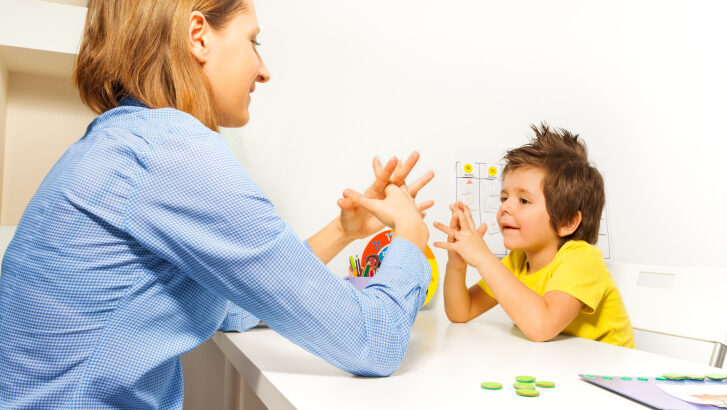Podcasts are an excellent way to work on self-improvement without dedicating much time. Whether you want to learn to be more productive or sleep better, these podcasts will help you reach your goals.

Whether you’re on your morning commute or working out, podcasts are a great way to turn daily tasks into learning opportunities. Oftentimes, these podcasts are hosted by experts who share their knowledge in a subtle, not-too-hard way that will teach you something new and make your life better in the process. Keep reading the article below to learn more about Best Self Improvement Podcasts For Young Adults.
The Tim Ferriss Show is one of the most popular self improvement podcasts out there and for good reason. The host is a bestselling author who knows how to help others get the most out of their lives. He covers a wide variety of topics from improving your health to building side hustles.
He also dives into topics like how to learn and master a new skill and the best ways to build your personal and professional brands. The show is a bit longer than most podcasts but the content makes it worth your time.
Gretchen Rubin, author of the bestselling books Happier and Better Than Before, is a popular guest on this podcast. She offers practical, manageable advice on happiness and habits in a straightforward style that’s easy to digest. Unlike some productivity influencers, she avoids the elitist tone of other self-improvement podcasts and encourages you to find joy in your work and to set healthy boundaries with friends and family.
Call Your Friends
One of the most valuable self improvement habits that young adults can adopt is calling their friends more often. In a time when many people feel disconnected and lonely, reaching out to friends can be beneficial to their mental health. Rod Wave’s song “Call Your Friends” reflects on the importance of genuine relationships and encourages listeners to spend more time connecting with their loved ones. He also emphasizes the need to let go of negative feelings and reminds people that life is too short to hold onto grudges. He urges listeners to replace their social media activity with phone calls, even if it’s only for five minutes.
The Minimalists
Minimalists live lives that are less cluttered, which can help them achieve mental clarity and feel more purposeful. However, the lifestyle can also cause stress and other problems for those who don’t fully embrace it. This is why it’s important for anyone considering minimalism to find what works best for them.
This Netflix original documentary aims to educate people on the benefits of minimalism and encourage them to declutter their lives. Joshua Fields Millburn and Ryan Nicodemus, the film’s creators, are minimalists who have a deep understanding of the effects of materialism. Their story is especially compelling since both of them lost a lot of money due to overspending and debt in their 20s.
The documentary also highlights the ways in which minimalism can benefit a person’s finances, career, and relationships. It is a way of escaping the vicious cycle of consumerism, which can lead to stress and anxiety.
Minimalists have a strong sense of purpose and want to focus on what’s most important in their lives. They tend to prioritize depth over breadth, which is why they would rather spend their time on a few hobbies and friends than spread themselves too thin. They also have a tendency to prioritize personal growth over status and wealth.
Rich Roll
The New York Times best-selling author, renowned vegan ultra-endurance athlete, and wellness advocate delivers inspirational conversations with unique guests. With a profound command of the room and unique ability to not only educate but catalyze change, Roll’s guests share strategies that help listeners become their most authentic selves.
Many self improvement podcasts suffer from survivorship bias, with hosts describing their own success and then promising that their listeners will have the same results. This is not the case with The Minimalists. Joshua Fields Millburn and Ryan Nicodemus encourage listeners to abandon things that are not essential, such as unnecessary belongings, unhelpful friendships, and impulsive habits.
This British podcast offers a welcome breath of humor in an often-serious world. Host Laura Jones interviews communication specialists on how to converse more effectively, which can help you in both your personal and professional life. You’ll learn how to negotiate, build rapport, and make a lasting impression. Whether you’re looking to improve your speaking skills or your listening skills, this is an indispensable tool for anyone interested in becoming their most authentic and productive self.
Chris Duffy
If you’re an avid listener of podcasts, chances are, you’ve come across Chris Duffy. Duffy is a writer, comedian, and host of TED’s hit podcast How to Be a Better Human. He also wrote for both seasons of Wyatt Cenac’s Problem Areas on HBO, as well as the streaming comedy game show Wrong Answers Only. He has also performed at SF Sketchfest, Caltech, Brown University, Harvard’s Eugene Mirman Comedy Festival, and the Cambridge Science Festival. He’s also the creator of You’re the Expert, a live show and public radio program on Boston’s WBUR where three comedians try to guess what scientists study all day.
Impact Theory
For those who want to learn how to master their mindset and improve their mental health, “Impact Theory” is a great place to start. This podcast features interviews with mental health professionals, entrepreneurs and other change-makers to give listeners actionable tips to make a difference in their lives.
Times best-selling author and entrepreneur Brendon Burchard hosts this podcast that tackles the hardest but most important aspects of life. He often interviews world-class athletes, business leaders and other thought leaders to teach his audience how to live a more meaningful and fulfilling life.
The goal of this podcast is to help people build better relationships and achieve their goals, even during difficult times. It offers practical advice on everything from overcoming anxiety and depression to finding happiness in the face of adversity.
The host of this podcast interviews change-makers and disruptors who break the rules of society to make a real impact in the world. The show is often quite intense and heavy but it’s worth a listen if you’re looking to feel inspired to buck the system.


